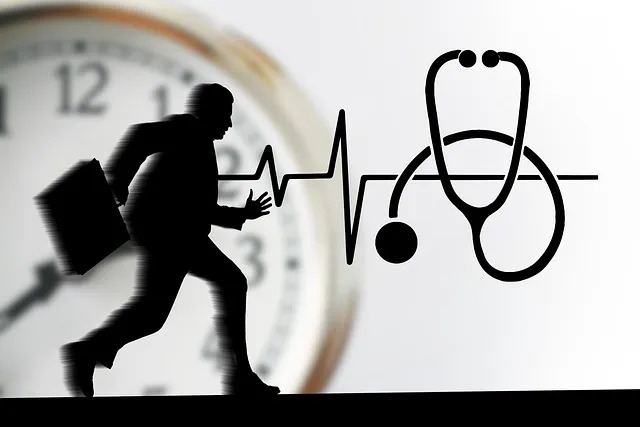Emotion regulation is a vital component of mental wellness, as it helps individuals manage their emotions effectively, preventing emotional overwhelm. The Kaiser Inpatient Mental Health Program in Boulder offers specialized care, including evidence-based practices like Social Skills Training and holistic approaches to enhance emotional well-being. Teaching emotion regulation skills through strategies like Empathy Building Strategies, Stress Reduction Methods, and public awareness campaigns is crucial for mental health education. These programs prove effective in reducing burnout, improving productivity, and maintaining resilience in both personal and professional settings. At Kaiser Boulder, these techniques empower individuals to manage intense emotions, leading to long-term emotional health, improved relationships, and sustained recovery. For those seeking inpatient mental health services, "does Kaiser have inpatient mental health Boulder?" is a key query, highlighting the accessibility of such vital resources.
Emotion regulation techniques are essential tools for managing mental health, and programs like the Kaiser Inpatient Mental Health Program in Boulder offer innovative approaches. This article delves into the concept of emotion regulation, highlighting its significance and benefits. We provide an overview of the Kaiser program, followed by a detailed exploration of various teaching methods and their practical applications. Discover how these techniques empower individuals to navigate emotional challenges, offering a transformative path to improved mental well-being, as evidenced by the success of Kaiser’s inpatient program in Boulder.
- Understanding Emotion Regulation: Unraveling the Concept
- The Kaiser Inpatient Mental Health Program in Boulder: An Overview
- Techniques for Teaching Emotion Regulation Skills
- Benefits of Incorporating Emotion Regulation Training
- Practical Applications and Real-World Impact
Understanding Emotion Regulation: Unraveling the Concept

Emotion regulation is a crucial aspect of mental wellness that involves understanding and managing one’s emotions effectively. It is the ability to recognize, process, and respond to feelings in a healthy and constructive manner, ensuring they don’t overwhelm or negatively impact our thoughts and actions. This concept is essential for overall well-being, especially for individuals navigating challenging situations, such as those seeking inpatient mental health services at facilities like Kaiser in Boulder.
Learning to regulate emotions can help foster resilience, enabling people to cope with stress, anxiety, and even intense passions without them becoming debilitating. It involves developing strategies to identify emotional triggers, cultivating mindfulness, and employing various techniques to calm the mind and body. This process is often facilitated through mental wellness coaching programs that teach conflict resolution skills and build resilience, allowing individuals to navigate life’s ups and downs with greater ease.
The Kaiser Inpatient Mental Health Program in Boulder: An Overview

The Kaiser Inpatient Mental Health Program in Boulder stands as a beacon of hope and specialized care for individuals grappling with mental health challenges. This program offers a comprehensive approach to treating various psychiatric disorders, focusing on both acute stabilization and long-term recovery. Patients have access to a multidisciplinary team comprising psychiatrists, psychologists, social workers, and nurses who work collaboratively to design tailored treatment plans.
The program integrates evidence-based practices, including Social Skills Training, to empower individuals with effective emotional regulation strategies. By fostering public awareness campaigns development, the facility ensures that patients receive not only clinical care but also education and support to navigate their mental health journeys effectively. This holistic approach is designed to prepare individuals for successful transitions back into their communities, equipped with the tools to manage their emotional well-being.
Techniques for Teaching Emotion Regulation Skills

Teaching emotion regulation skills is a vital part of mental health education, and various techniques can be employed to help individuals manage their emotions effectively. One effective approach involves Empathy Building Strategies, where teachers or facilitators model and encourage active listening, emotional validation, and perspective-taking. This helps students develop a deeper understanding of their own emotions and those of others, fostering a more compassionate environment.
Additionally, integrating Stress Reduction Methods such as mindfulness exercises, deep breathing techniques, and progressive muscle relaxation into the curriculum can provide students with practical tools to cope with intense emotions. Public Awareness Campaigns Development focused on emotional intelligence can further enhance these teachings by promoting open conversations about mental health and reducing stigma, ensuring that students feel supported in their emotional journeys both inside and outside of the classroom.
Benefits of Incorporating Emotion Regulation Training

Incorporating emotion regulation training into educational or corporate settings can yield significant benefits for individuals and organizations alike. At facilities like Kaiser’s inpatient mental health services in Boulder, such programs have shown promise in enhancing mental wellness and preventing burnout. By equipping people with effective strategies to manage their emotions, these training sessions foster a greater sense of emotional intelligence—a crucial aspect of overall well-being.
This proactive approach not only improves individuals’ ability to cope with stress but also boosts productivity and job satisfaction. In the fast-paced world where work-life balance is often challenged, integrating emotional regulation techniques can help employees maintain stability and resilience, ensuring a healthier and more sustainable future for both employees and the organizations they serve.
Practical Applications and Real-World Impact

Emotion regulation techniques play a pivotal role in various real-world scenarios, especially within mental health facilities like Kaiser’s inpatient programs in Boulder. These techniques are instrumental in helping individuals manage their emotional responses effectively, fostering inner strength and resilience. By teaching practical applications such as mindfulness exercises, cognitive restructuring, and deep breathing strategies, patients gain valuable tools to navigate challenging situations. This empowers them to respond rather than react to intense emotions, leading to improved well-being and quality of life.
Furthermore, integrating emotion regulation into inpatient mental health care has a profound impact on long-term success. It encourages the development of self-care routines tailored to individual needs, promoting better emotional health. As patients learn to cultivate self-esteem and inner strength, they become more equipped to handle stressors, preventing relapse and encouraging sustained recovery. This holistic approach not only benefits individuals during their stay but also equips them with lifelong skills to thrive in various aspects of life, including personal relationships and career pursuits.
The article has explored the significance of emotion regulation techniques teaching, highlighting the comprehensive approach offered by programs like the Kaiser Inpatient Mental Health Program in Boulder. By integrating various skills and benefits, these initiatives empower individuals to navigate their emotional landscapes effectively. Incorporating such training into mental health practices holds immense potential for real-world impact, enabling folks to manage stress, prevent crises, and foster overall well-being. Given the proven advantages, it’s clear that programs like Kaiser’s are game-changers in the realm of mental healthcare.






